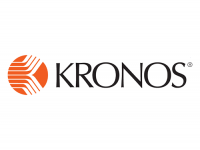Category: Talent
Employee feedback, compliance, government forms, leave policies, recruiting: the list of tasks that an HR professional have to perform is nearly endless. Just as important as any one task is how professionals put them all together into a united front. Welcome to the Strategic HR topic.
In the 2015 film, The Intern, Robert De Niro plays an 80-year-old widower who discovers that he’s bored with retirement and becomes a senior intern at an online fashion site. In true Hollywood fashion, he becomes the hero of the day and rescues the company’s thirtysomething founder, both in terms of her professional and personal […]
During mergers and acquisitions (M&A), one aspect of the transaction that is often overlooked is an effective communications strategy to the audience most responsible for a company’s success: its employees. According to a recent report published by Deloitte, 75% of corporate executives and private equity investors expect M&A activity to increase in 2017, both in quantity of transactions as well as deal size.
It’s true, none of us is getting any younger. But what’s especially interesting is that our workforce is becoming significantly older. In fact, it’s projected that by the year 2030, the number of people 65 years or older in the U.S. will represent 20% of the U.S. population, and many of them will still be […]
Employee burnout. Everyone’s heard of it and most of us have probably complained about feeling burnt out at one point or another. How can we not? For many, the pressure to succeed at work has never been higher. This is true for both hourly and salaried employees, as the opportunity to unplug has become increasingly […]
It’s one of today’s most vexing economic puzzles: Why can’t employers find workers to fill their positions when approximately 7.5 million Americans are unemployed, and millions more are working part-time because they can’t find full-time positions or have given up looking for work altogether?
Millennials, to many employers, are an enigma. Even though the oldest of them are now in their 30s, they continue to be the generation without a clear definition—you might even say that the defining characteristic of Millennials is in fact that they can’t be put neatly into a box. They’re meaning-makers. They’re experience-seekers. And now, they make […]
Technology advances as it matures. Before Enterprise Resource Planning (ERP) platforms, there were hundreds of start-ups solving supply chain problems. Before comprehensive financial software, there were accounts payable, receivable, and bookkeeping packages. Eventually they merged into the platforms we know today.
Most leaders of companies today recognize the importance of having engaged people at work. Yet research from the Metrus Institute, Gallup, and others say that between 50% and 80% are not fully engaged. For many organizations, a majority of employees are only partially engaged, which research has shown reduces performance and customer satisfaction while increasing turnover. Worse yet, your best talent—those with lots of options—are most likely to leave.
A new survey reveals that companies are highly optimistic about growth, but need cloud technology innovation and strategy to overcome challenges.
Employee engagement has many definitions, can take many forms and has many measures. The Conference Board, a nonprofit specializing in management and marketplace research, defines it as “employees’ emotional and intellectual attachments to their jobs.” The Gallup Management Journal says that “engaged employees work with passion and feel a profound connection to their company.”









